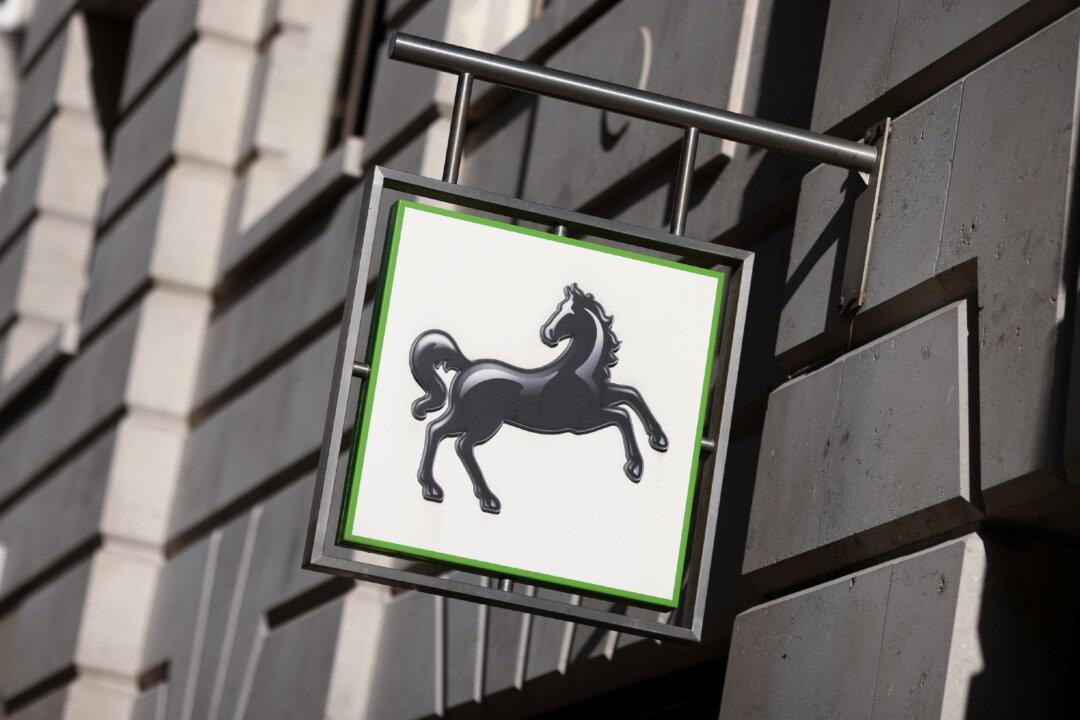LONDON—Britain’s biggest domestic lender Lloyds Banking Group contacted 2 million of its 26 million customers in May after identifying they could need extra support to cope with soaring food and energy prices and rising debt costs.
The UK’s largest mortgage provider outlined options including debt consolidation, household budget reviews, and spending control tools to customers it felt could be caught in the crosshairs of an escalating cost of living crisis, a spokesperson told Reuters.





